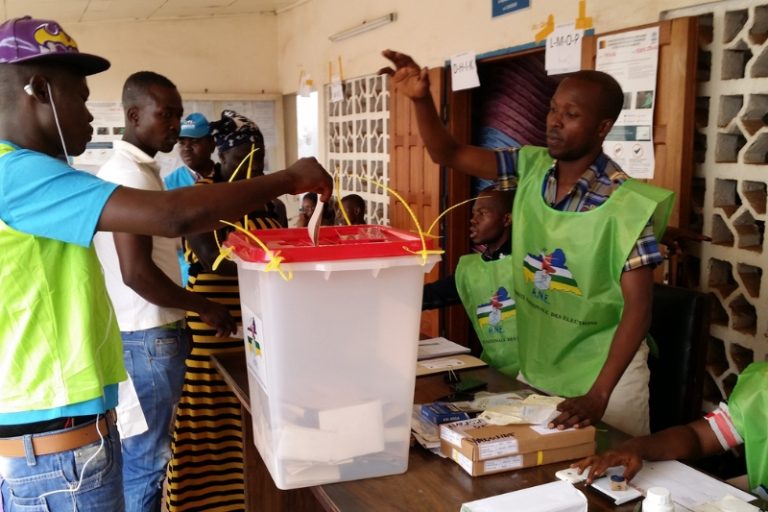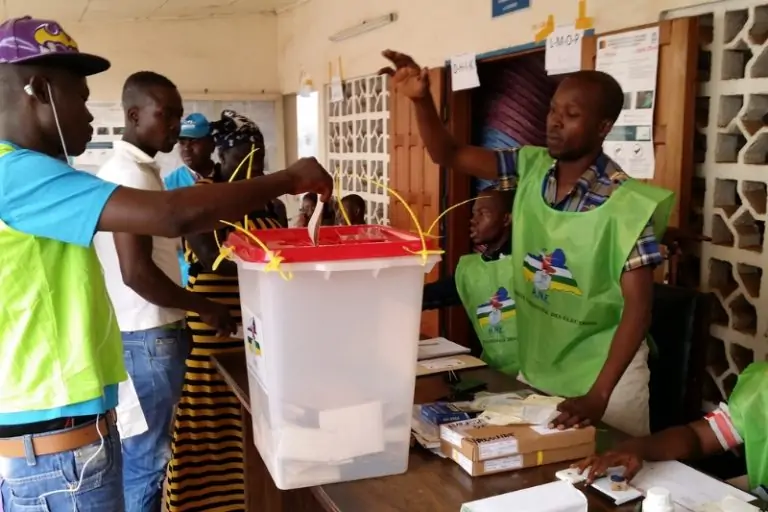

refugees from south sudanese origin in uganda long to cast votes in the next elections
Last updated on May 27th, 2024 at 02:14 am
Bidibadi, Uganda – Home to thousands of South Sudanese refugees, the Bidibidi refugee community in Uganda’s West Nile area is seeing an explosion of hope and expectation. Many refugees are ready to go back home and take part in the December elections as the government of South Sudan announces intentions to start voter registration in June.
Among them is Noel Amba, eighteen years old, who arrived in the camp in 2016 amid the height of the civil violence having entered as a youngster. Voting confronts Amba with an opportunity for transformation. “We are going back if I fail to vote for the president I wish it to be. Remember in Uganda, as refugees we do not receive 100 percent of the required help. I therefore think it crucial to return home and cast a ballot. Should the correct leader arrive, all the services will be rendered equally,” he stated.
Raziah Athman, an Africanews correspondent in Bidibidi, notes that nearly 198,000 South Sudanese refugees call their home. “Since 2016, when Bidibidi was established, many of the refugees have grown into adults who can vote but the asylum law forbids them from participating in both local and national politics in both countries,” Athman said.
Though it wasn’t specifically to get refugees ready for political involvement, last year the governments of South Sudan, Uganda, and the UNHCR conducted democracy education in the settlement.
The complexity involved was explained by Bidibidi refugee settlement commander Nabugere Joel. “Yes, legally unless otherwise someone who avails himself to the protection of his nation of origin is no more qualified to be a refugee. Now, considering the situation in South Sudan, one can go back for various purposes depending on general war. Some go for burial, some meet family, but there is still fighting there so we have not been very rigorous; so, when they come back and use, we review and reallow.”
Starting in 2013 over a power conflict between President Salva Kiir and Vice President Riek Machar, the South Sudanese civil war claimed about 400,000 lives and caused millions of displacements till 2018. The UN is still dubious about South Sudan’s capacity to hold fair elections and insists that the nation first satisfies requirements like writing a constitution and aligning opposing groups.
Although things are unstable back home, Uganda’s refugees hope their ballots will have impact. Another exile, Alfred Waran, said, “Your heart still belongs and looks back to your motherland whether you travel to the South, North, East, or West. Going back home for December elections in South Sudan excites me… (but do you know what will happen subsequently?)…Well, I’m not sure what’s ahead, but I hope nothing negative will transpires.”
The government of South Sudan has set aside $14 million for election institutions in readiness for the polls. Head of the National Elections Commission, Abenei Akok has presented a preliminary schedule for the first presidential contest in the youngest nation in the world.
The cricket authority in Zimbabwe will organize matches between top international teams in a major cricket event expected to succeed…
In 2025 the South African Social Security Agency (SASSA) announced its designated dates for social grant payments that benefits millions…
Africa is taking big steps by entering the global green technology manufacturing market to stop being just a supplier of…
Two mobile telecom leaders, MTN Group and Airtel Africa, joined forces to create a new digital infrastructure system throughout African…
South African President Cyril Ramaphosa defended his nation against claims of white discrimination made by tech magnate Elon Musk. After…
Hilton launched Signia by Hilton for its first appearance in Egypt and Africa through its hotel expansions. These hotels at…
This website uses cookies.